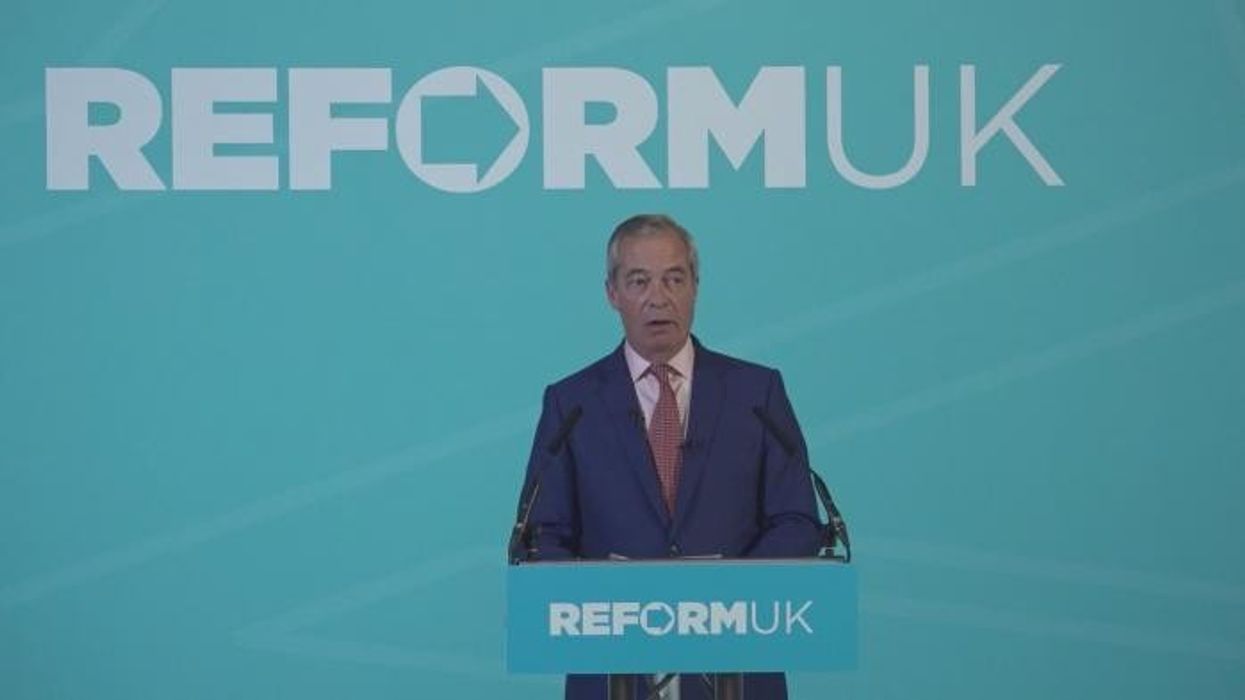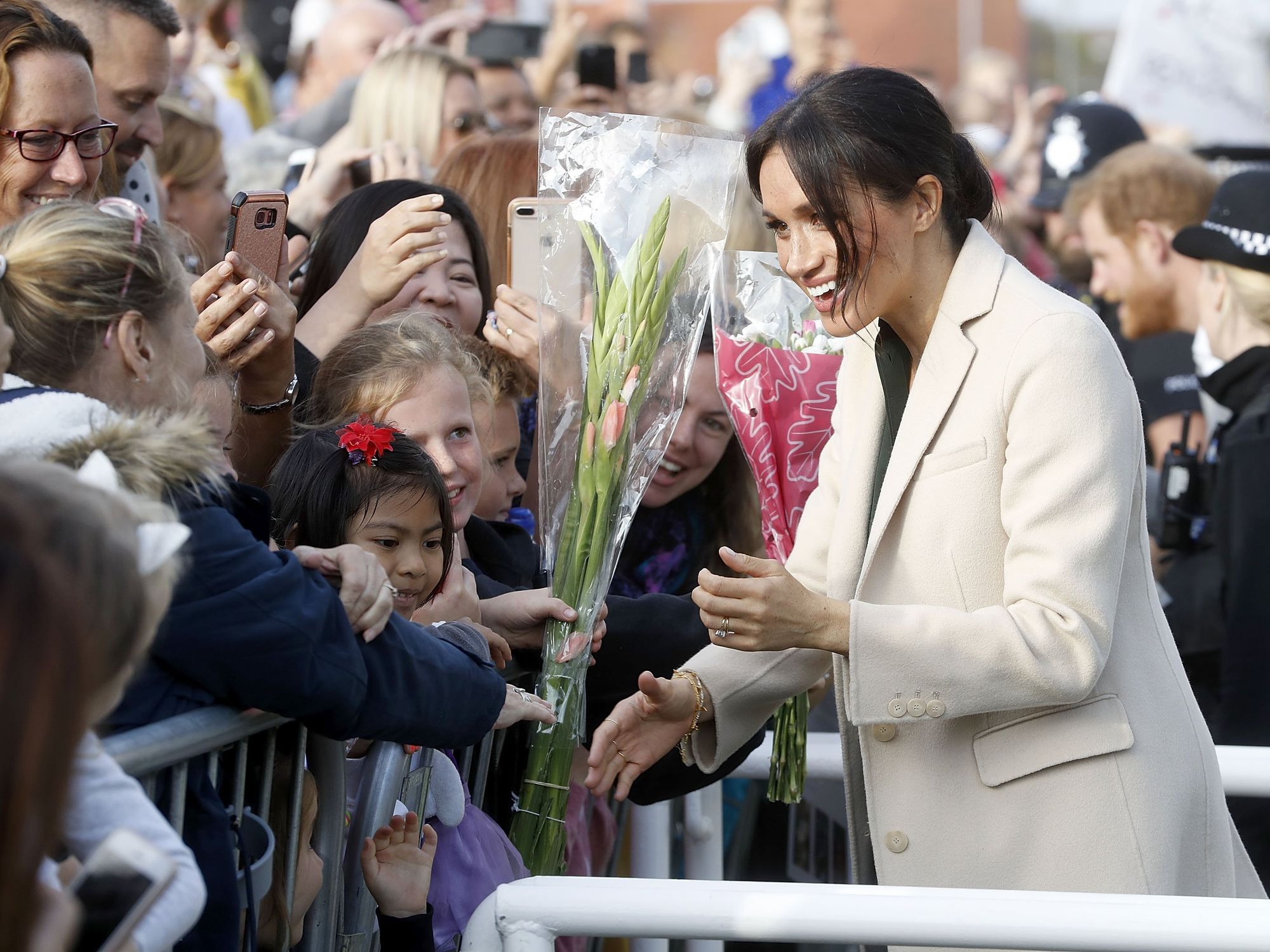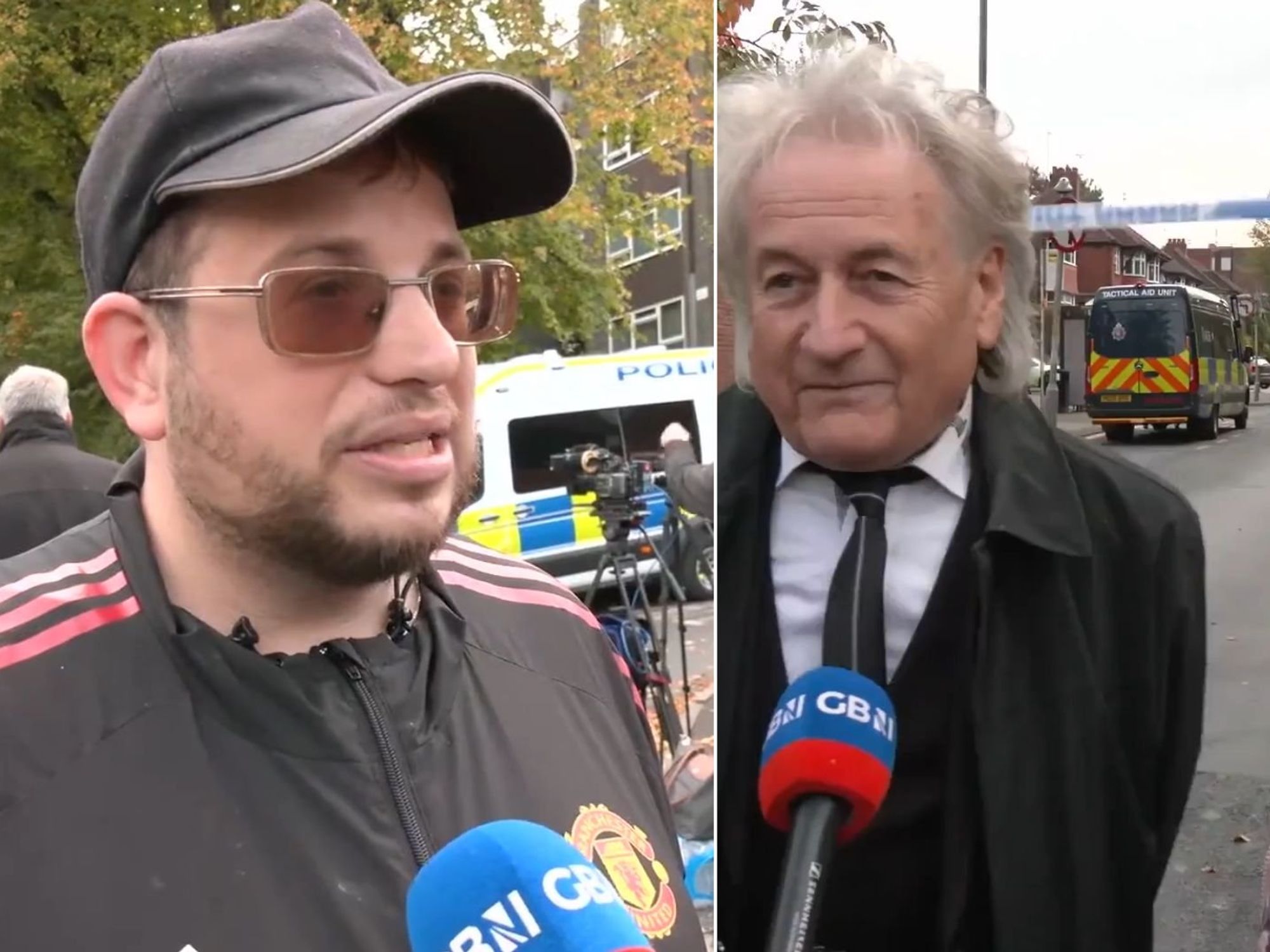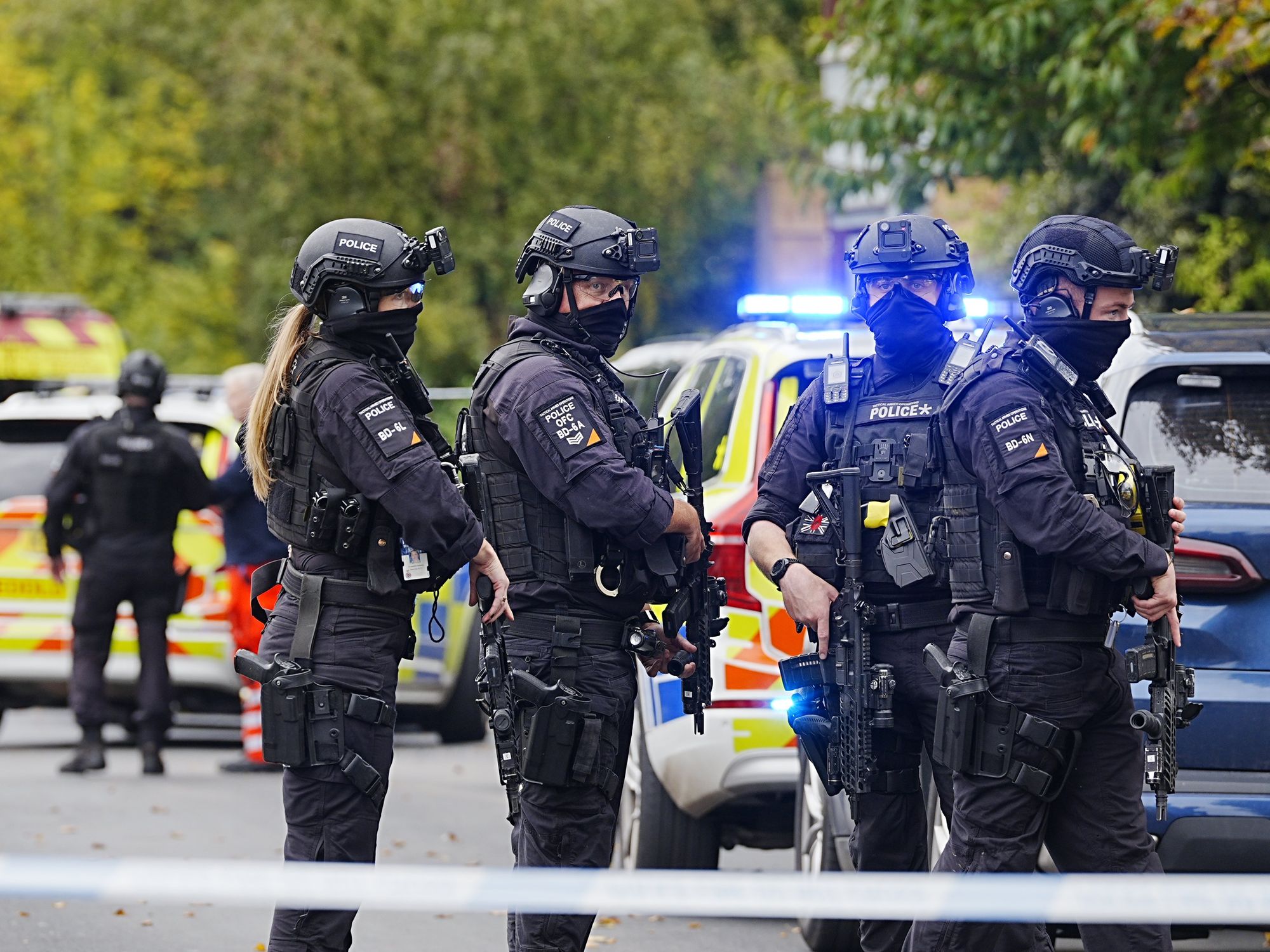REVEALED: Nigel Farage's high-wire act to undo Boris Johnson's 'greatest betrayal' if he becomes PM

The Reform UK leader has tied his political future to reversing the 'Boriswave'
Don't Miss
Most Read
Trending on GB News
Speaking at a press conference on Monday, Nigel Farage unveiled his party's most radical plan yet to solve Britain's migration crisis.
The Reform UK leader promised to reverse the "Boriswave" if he won the next General Election.
Mr Farage told reporters: “In particular, what we’re focusing on this morning is the ‘Boriswave’ after his huge victory in 2019. And I think the millions that came in the years of his premiership represents the greatest betrayal of democratic wishes, certainly in anyone’s living memory.
“This is not what Brexit voters wanted, and it’s certainly not what any Conservative voter wanted from 2010 onwards.”
He added: “Far too many that have come don’t work, have never worked and never will work.
"The ability to bring dependants of all kinds, and when you realise that most that come are very low-skilled, and on very low wages, you start to get a very, very different picture. In fact, you start to get a massive benefits bill.”
What is the Boriswave?
The Boriswave refers to the large number of migrants who settled in the UK during Boris Johnson's premiership.
After winning a landslide election in 2019, the then Conservative Prime Minister ended freedom of movement between Britain and the EU and introduced new immigration rules to unlock the benefits of Brexit.
Mr Johnson’s “points-based” immigration system was designed to bring in skilled workers and tighten control of Britain’s borders.
Indefinite leave to remain (ILR) was the main route by which these migrants settled in the UK.
ILR gives you the right to live, work and study here for as long as you like, and apply for benefits if you’re eligible. You can use it to apply for British citizenship.
You must usually have lived and worked in the UK for five years to be eligible.
Instead of attracting the highly skilled workers Britain's economy needed — and Mr Johnson promised — many of the new arrivals were low-skilled and had limited English language skills.
And they have settled in increasing numbers in recent years.
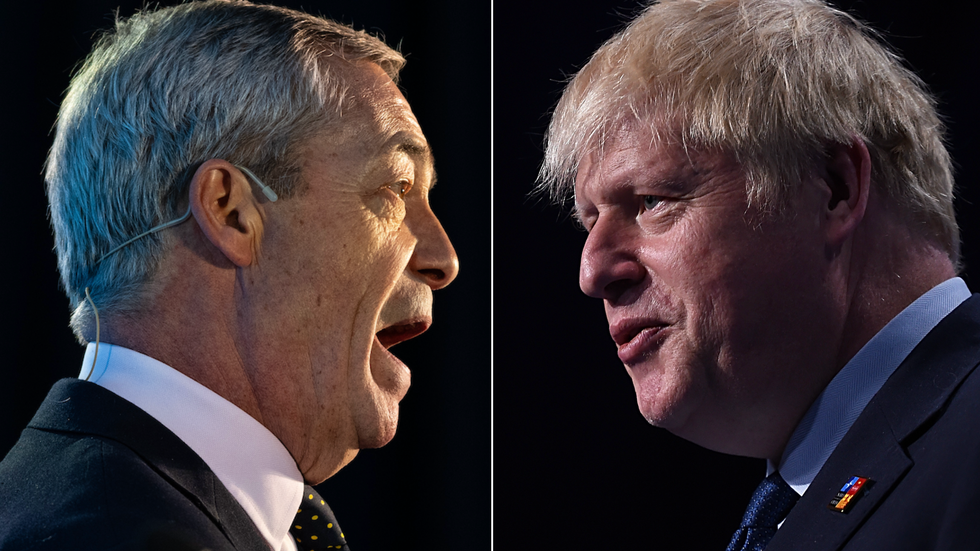
REVEALED: Inside Nigel Farage's high-stakes bid to undo Boris Johnson's 'greatest betrayal' if he becomes PM
|Getty Images
As Colin Brazier wrote in his weekly column for GB News online, the combined effect of the Boriswave and ILR was an "unprecedented refashioning of our national ethnic mural" with "no rubber dinghies" in sight.
Just how high was the Boriswave wave?
Home Office figures reveal that in 2022, 572,815 applications to extend foreign nationals’ stay were approved — up 42 per cent on the year before and 86 per cent on 2019 when Mr Johnson first took office.
More than three million people were given visas to enter the UK between 2021 and 2024, with one million arriving in 2023 alone (when Boris came to power, net migration to the UK was 188,000).
How does Reform plan to reverse it?
Reform has said it would axe the right of migrants to apply for ILR, ban anyone who is not a UK citizen from claiming benefits, and force those applying for UK citizenship to renounce other citizenship.
Applicants would also have to meet other criteria, including a higher salary threshold and a better standard of English. They would have to have lived in the UK for seven years, up from five, and there would be tighter restrictions on bringing spouses and children to the UK.
Based on projections that 800,000 people will be eligible for ILR between 2026 and 2030, the Centre for Policy Studies initially estimated the cost to the taxpayer to be £234billion, equivalent to £8,200 for every UK household, spread across several decades.
However, the CPS later distanced itself from this figure, stating that since it had been a lifetime estimate, it should no longer be used.
The saving estimate was also called into question after it emerged there would be a carve-out for EU citizens with settled status.
Government sources have said there are 777,000 foreign Universal Credit claimants with this status.
When questioned over the CPS figure, Mr Farage doubled down, claiming it was an underestimation.
He said: “The £230billion figure, as Zia (Yusuf, head of policy) has just said, is without a doubt too low.
“It underestimates things, I suspect many more than 800,000 actually will apply for indefinite leave to remain, plus it’s quite tough to get all the figures.
“And if you go back to those who have already been granted indefinite leave to remain, without doubt the number is considerably bigger.”
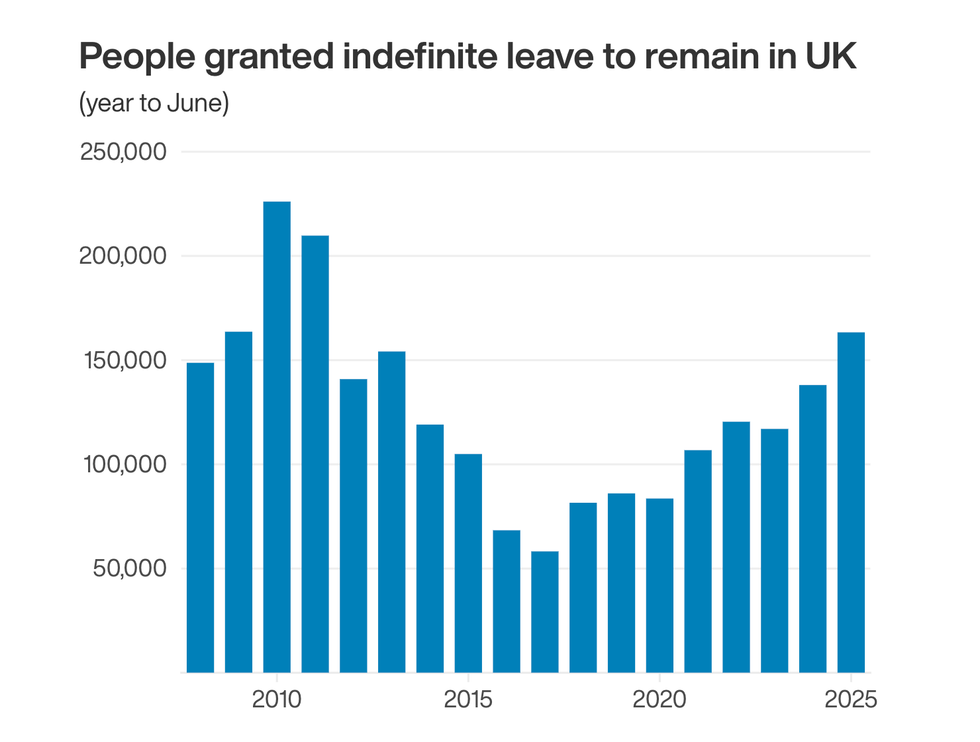
Home Office figures reveal that in 2022, 572,815 applications to extend foreign nationals’ stay were approved — up 42 per cent on the year before
|PA/Home Office
Reform's pledge to scrap ILR has divided opinion, with several shots coming from Labour.
Chancellor Rachel Reeves said the figures show Reform’s plans “have no basis in reality”, while Labour chairwoman Anna Turley said Mr Farage was “unable to say how many families his policy would break up”.
The Tories slammed the proposals as “half-baked and unworkable”, and Lib Dem leader Ed Davey claimed Mr Farage would unleash "the forces of darkness" in Britain.
Piers Morgan branded the policy "outrageous" on X, writing: "Nobody who’s been granted indefinite leave to remain in the UK should have that rescinded unless they abuse that status by committing a crime."
GB News columnist Adam Brooks countered in his column that it "isn’t about being cruel, it’s about being fair", claiming that self-deportation is the only way to bring the numbers down.
Former editor of The Sun, Kelvin MacKenzie, focused on the silver lining, writing that "Boris opened the door not only to millions of migrants but to Nigel Farage. And for that, we must be thankful".
In our latest poll, we asked: Would abolishing ILR solve Britain's migration problem?
Out of the 3,287 respondents, 87 per cent said yes and 13 per cent said no.
More From GB News


